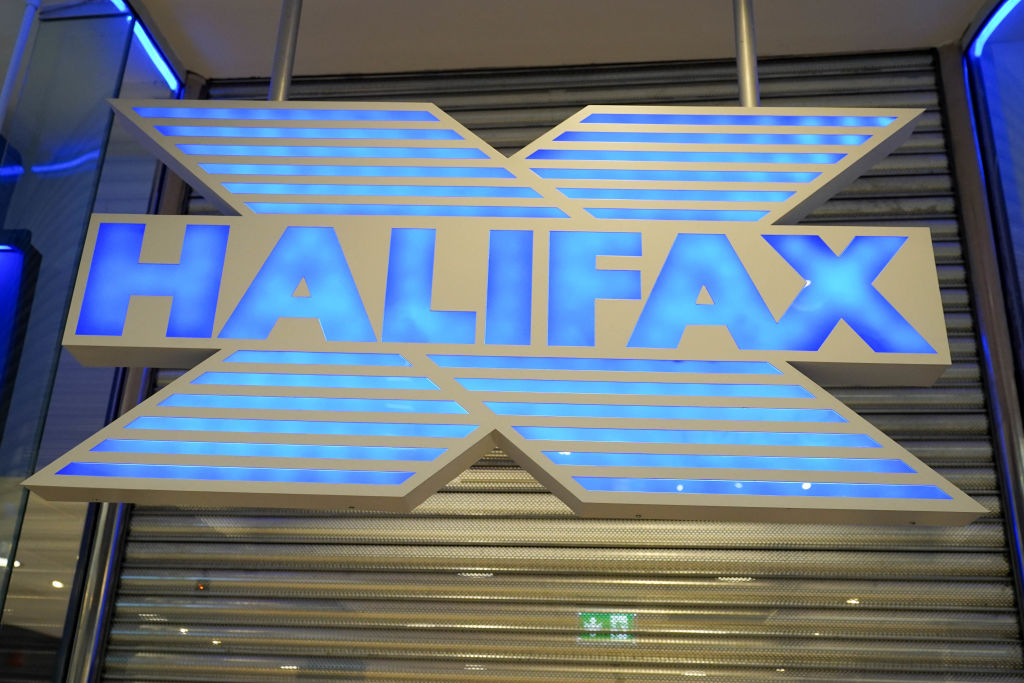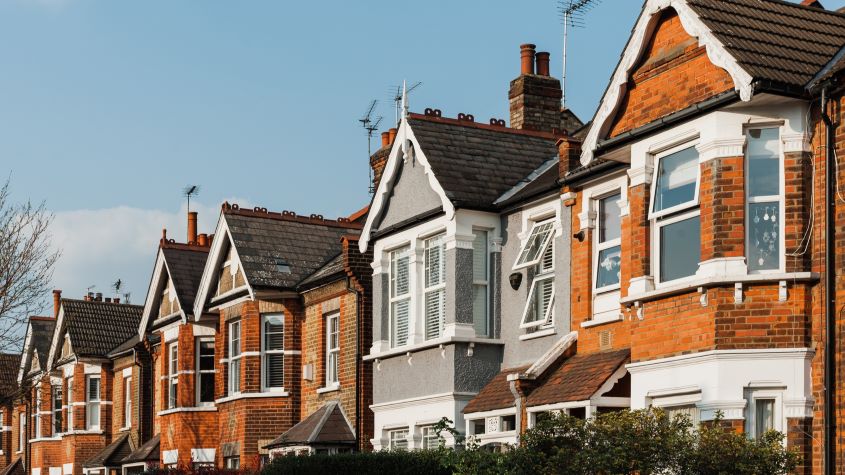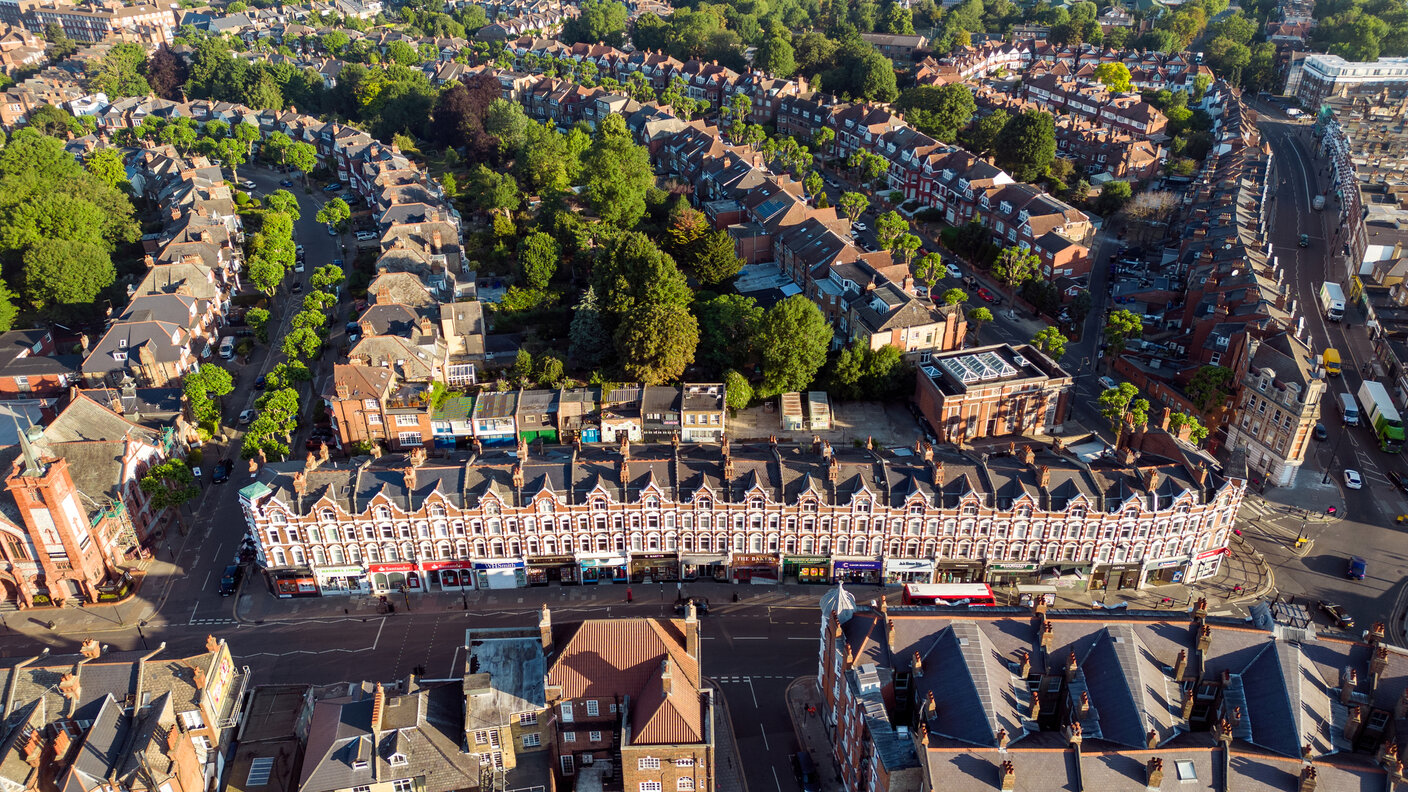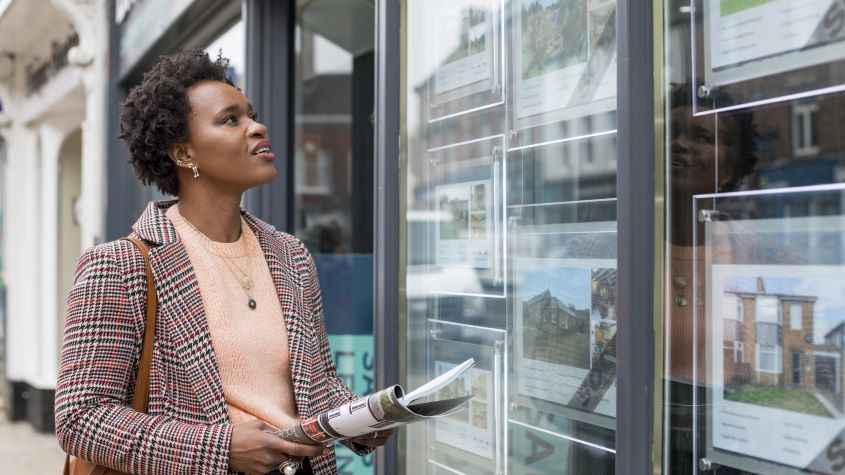Halifax: House prices rise at fastest pace since start of year
The average UK house price jumped 0.4% in July, reaching £298,237, close to a record high, new house price index data shows. Will property prices increase further this year?


Get the latest financial news, insights and expert analysis from our award-winning MoneyWeek team, to help you understand what really matters when it comes to your finances.
You are now subscribed
Your newsletter sign-up was successful
Want to add more newsletters?

Twice daily
MoneyWeek
Get the latest financial news, insights and expert analysis from our award-winning MoneyWeek team, to help you understand what really matters when it comes to your finances.

Four times a week
Look After My Bills
Sign up to our free money-saving newsletter, filled with the latest news and expert advice to help you find the best tips and deals for managing your bills. Start saving today!
House prices rose by 0.4% in July, the biggest monthly increase since the start of the year.
The average UK property now costs £298,237, according to Halifax. The lender said house prices have risen by 2.4% over the past year, with Northern Ireland continuing to record the strongest annual price growth.
Amanda Bryden, head of mortgages at Halifax, says that while the national average is close to a record high, prices vary widely across the country depending on a number of factors, such as location and property type.
MoneyWeek
Subscribe to MoneyWeek today and get your first six magazine issues absolutely FREE

Sign up to Money Morning
Don't miss the latest investment and personal finances news, market analysis, plus money-saving tips with our free twice-daily newsletter
Don't miss the latest investment and personal finances news, market analysis, plus money-saving tips with our free twice-daily newsletter
She adds: “Challenges remain for those looking to move up or onto the property ladder. But with mortgage rates continuing to ease and wages still rising, the picture on affordability is gradually improving.”
The UK housing market has been sluggish this year, with house price declines seen in February, March and May, according to Halifax’s house price index.
While Halifax says prices rose last month due to a resilient housing market and plenty of activity, Rightmove reports a “July slump”, with asking prices for UK properties falling by 1.2%, marking the biggest drop ever recorded by the firm.
However, the property website interprets the dip as showing that sellers are enticing buyers with more competitive deals during the traditionally slow summer period. The number of sales agreed upon is 5% higher than last year, suggesting realistic pricing is the key to selling a home.
Both sets of data are good news for a property market that has struggled with expensive mortgages and stamp duty hikes earlier this year.
We look at whether house prices will continue to rise in 2025, and which regions have seen the highest property price inflation so far.
Which regions have seen the highest house price growth?
Northern Ireland continues to be the strongest performing nation or region, with house prices rising by 9.3% over the past year (compared to a UK average of 2.4%). A typical home now costs £214,832.
Scotland also recorded positive house price growth in July, increasing by 4.7% with average prices now at £215,238.
Property prices in Wales saw a rise, up 2.7%, to an average of £227,928.
Among regions in England, the North West and Yorkshire and the Humber have the highest rate of property price inflation, up 4% over the past year to £242,293 and £215,532 respectively.
The South West, and London and the South East, continue to see moderate growth, with prices rising by just 0.2% and 0.5% respectively over the past 12 months. London remains the most expensive part of the UK. The average home in the capital costs £539,914.
What’s the outlook for UK house prices?
Most experts expect house prices to continue to rise this year. Halifax is forecasting “a steady path of modest gains through the rest of the year”.
The outlook will depend on whether the Bank of England cuts interest rates again, the supply and demand balance within the housing market, and affordability pressures.
Tomer Aboody, director of specialist lender MT Finance, comments: “Lower mortgage rates, combined with sellers pricing more sensibly even though the national average house price is close to a record high, is encouraging buyers to transact and take advantage of finding themselves in a reasonably strong position.
“With at least one more rate cut expected this year, both buyers and sellers are hoping for a strong second half of the year.”
Tom Bill, head of UK residential research at Knight Frank, notes that while the housing market is “getting back on its feet following the disruption of April’s stamp duty cliff edge”, high levels of supply are keeping prices in check.
“We expect low single-digit annual growth by the end of the year but that depends on the content of the Autumn Budget,” he added. “Some parts of the economy are already adopting the brace position and buyers could begin to hesitate after the summer if speculation over tax rises persists.”
Property buyers do have some good news in terms of falling mortgage rates and changes to mortgage rules.
Thomas Lambert, financial planner at Quilter, explains: “The Financial Conduct Authority has announced changes to its mortgage rules, easing affordability requirements for customers looking to switch to cheaper deals or reduce the term of their mortgage. Removing the need for a full affordability assessment in certain cases, such as reducing mortgage terms or switching to a more affordable product, should help borrowers make financially beneficial changes with less friction.”
The government’s new permanent 95% mortgage guarantee scheme will also help first-time buyers and home movers buy a home with a deposit of just 5%.
Get the latest financial news, insights and expert analysis from our award-winning MoneyWeek team, to help you understand what really matters when it comes to your finances.

Ruth is an award-winning financial journalist with more than 15 years' experience of working on national newspapers, websites and specialist magazines.
She is passionate about helping people feel more confident about their finances. She was previously editor of Times Money Mentor, and prior to that was deputy Money editor at The Sunday Times.
A multi-award winning journalist, Ruth started her career on a pensions magazine at the FT Group, and has also worked at Money Observer and Money Advice Service.
Outside of work, she is a mum to two young children, while also serving as a magistrate and an NHS volunteer.
-
 Should you buy an active ETF?
Should you buy an active ETF?ETFs are often mischaracterised as passive products, but they can be a convenient way to add active management to your portfolio
-
 Power up your pension before 5 April – easy ways to save before the tax year end
Power up your pension before 5 April – easy ways to save before the tax year endWith the end of the tax year looming, pension savers currently have a window to review and maximise what’s going into their retirement funds – we look at how
-
 Average UK house price reaches £300,000 for first time, Halifax says
Average UK house price reaches £300,000 for first time, Halifax saysWhile the average house price has topped £300k, regional disparities still remain, Halifax finds.
-
 UK house prices remained flat in May, Halifax finds
UK house prices remained flat in May, Halifax findsNews Average house prices fell 0.1% month-on-month, meaning they have remained relatively static for three consecutive months on the Halifax HPI.
-
 Halifax: House price slump continues as prices slide for the sixth consecutive month
Halifax: House price slump continues as prices slide for the sixth consecutive monthUK house prices fell again in September as buyers returned, but the slowdown was not as fast as anticipated, latest Halifax data shows. Where are house prices falling the most?
-
 Nationwide: House prices continue to slide as mortgage rates rise
Nationwide: House prices continue to slide as mortgage rates riseHouse prices continue to fall amid rising mortgage rates, Nationwide’s latest house price index reveals.
-
 Property market flatlines as average mortgage rate rises to 6%
Property market flatlines as average mortgage rate rises to 6%Two-year mortgage rates have risen to above 6% for the first time since September.
-
 Halifax: House prices rise for the third month in a row
Halifax: House prices rise for the third month in a rowNews Despite higher interest rates, Halifax says house prices are still rising in some parts of the country
-
 UK home sellers cut £14,000 off their asking prices as the buyers’ market returns
UK home sellers cut £14,000 off their asking prices as the buyers’ market returnsNews The latest house price index from Zoopla shows sellers are accepting a 4.5% discount on asking prices to secure a sale as the property market cools down.
-
 House prices fall for four months straight
House prices fall for four months straightNews UK house prices dipped by 1.5% in December, the fourth consecutive month, Halifax’s latest House Price Index reveals